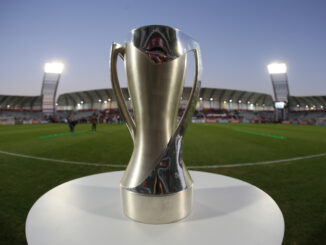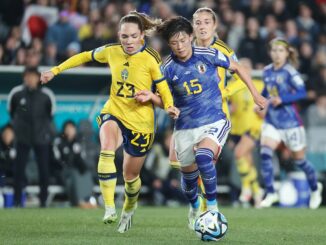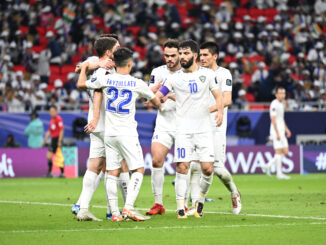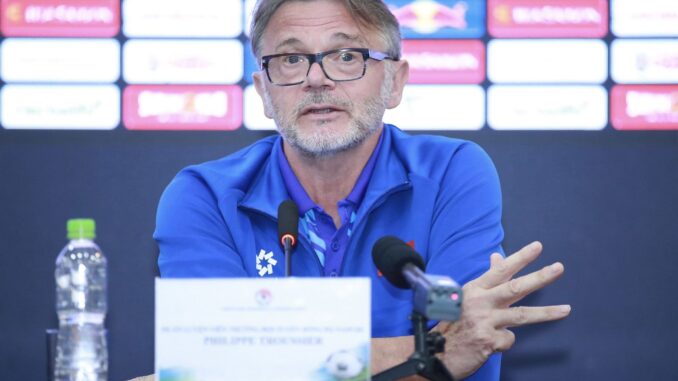
‘Here we have amazing energy, it’s like we are sitting on a volcano.’
They were the words that Philippe Troussier said to me five years ago about the potential of Vietnamese football as we stood on the sprawling grounds of the PVF Academy on the outskirts of Hanoi.
This afternoon, he will step off the crater and stare down the nation whose footballing rise he helped to chart as Vietnam face Japan in their Asian Cup opener.
One of the hallmarks of Troussier’s long career has been his ability to tap into elements of national identity, to forge a spirit of belief and foster a culture of success.
From those early days overseeing the academy setup he already had a sense that something special was possible, telling me that there’s ‘strong potential’ for Vietnam to make their mark not just on the continental stage, but on the global one.
“We know the story of this country over the last century and there is a strong identity of the flag and the nation where they have a big pride for their country.
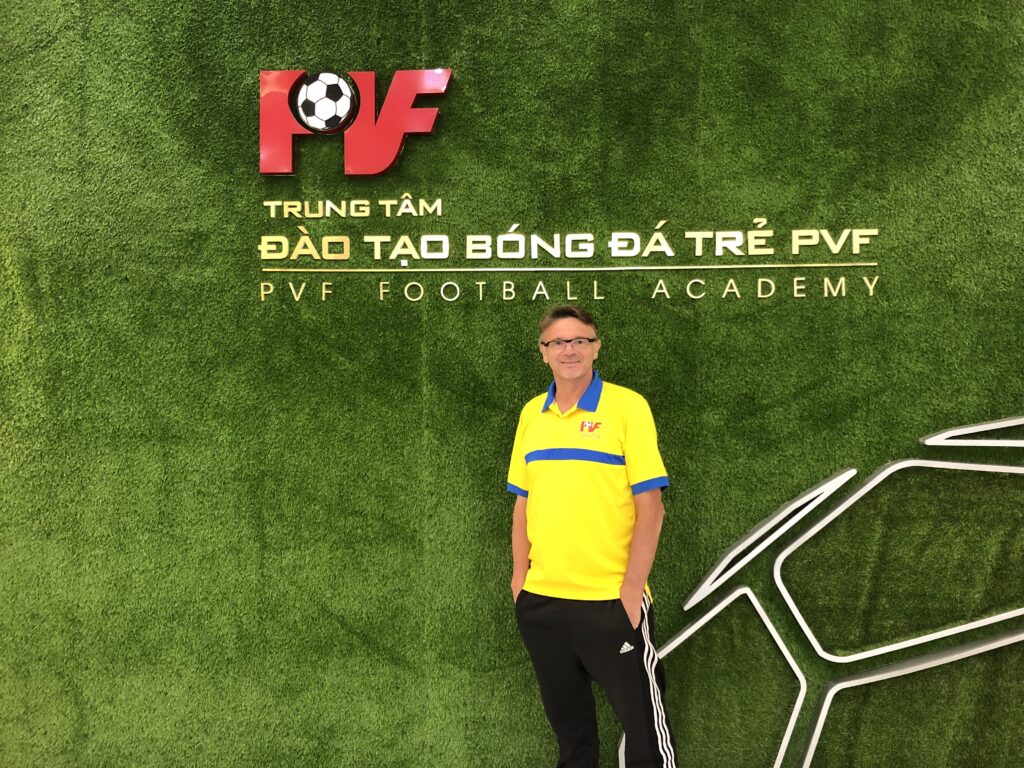
“Of course if we compare things to Japan or Korea then the technical level is maybe not the same but if Vietnam can play with their identity and their culture then there is the power to make big achievements because in terms of mentality and physical qualities, all the ingredients are there.”
One of the first things that Troussier did upon taking charge of both Japan and Vietnam – some two decades apart – was to ensure he was in control not just of the senior side but also the age level below them.
It allowed him to assess the quality of the younger national groups but also to instil that mentality and belief that’s vital to the success he’s had both in Asia and, in far earlier times, in Africa.
Even the nickname from those distant days, the slightly cringeworthy ‘white witch doctor,’ has made a return via the Vietnamese press and while he’ll need to conjure up some kind of deadly spell to upset Japan in Qatar, the course he’s hoping to plot for Vietnam is one that will see them close the gap over the coming years.
Troussier was the right man at the right time for Japan, giving the players and the nation belief, helping to forge a tactical style, focused on a three-man backline, that wasn’t commonplace domestically at the time but which quickly filtered into the J.League.
He oversaw and polished a talented generation of players that finished as runners-up at the 1999 FIFA World Youth Championships – a group that included the likes of Shinji Ono, Yasuhito Endo, Naohiro Takahara and Junichi Inamoto – and then piloted the senior side to the second round of the FIFA World Cup for the first time.
The hope in the Southeast Asian nation is that he can spark a similar rise but as he is acutely aware, there are stark differences between Japan at the turn of the century and Vietnam almost a quarter of the way through it.
Whereas the J.League was meticulously planned with strong hometown roots that helped give rise to healthy support, rigorous requirements for youth development and, with the coming of the World Cup, numerous state-of-the-art venues, the process in Vietnam has been far more haphazard.
While fan and media interest is at fever pitch for the national side, at club level it’s anything but, the standard of both the playing and training facilities is, in many areas, substandard and youth development is disorganised and often left to a handful of – admittedly well-run, academies.
Crucially, the quality of both foreign players and coaches in the local league is not of a standard to help push the domestic players, with those players in turn rarely venturing outside the nation.
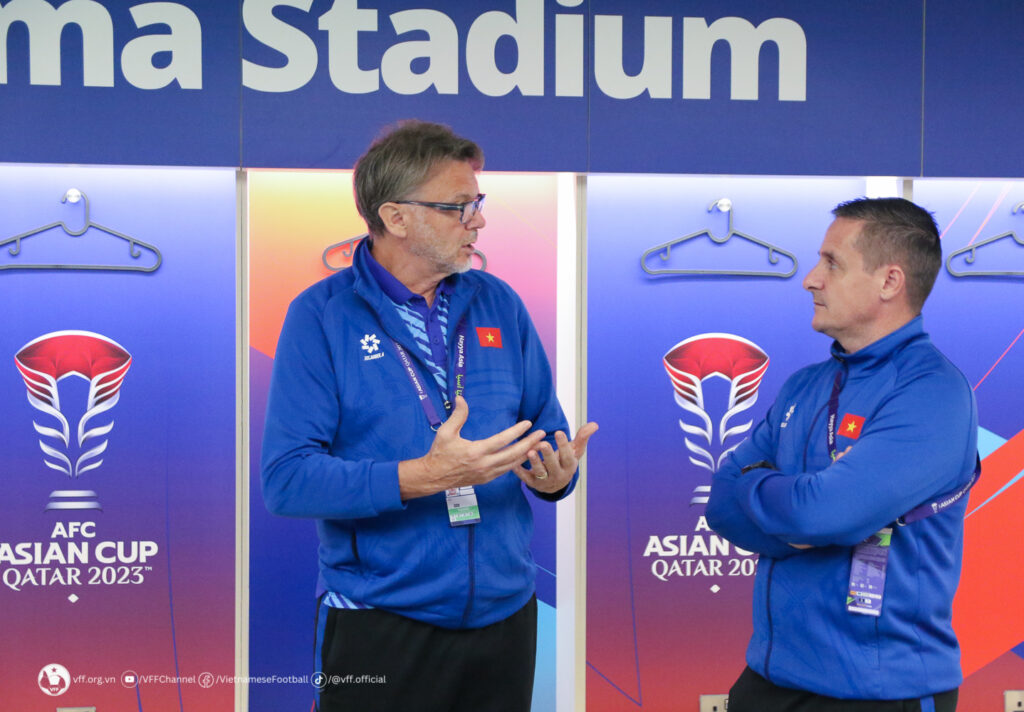
Still, the raw qualities are there in abundance and that’s what gives the likes of Troussier hope that one day they can prove to be more than just the sleeping giant of Southeast Asian football.
Positive results at the Asian Cup should trigger further discussion about development, investment and reform both in the way that youth pathways and the V.League are structured.
If the foundations aren’t solid, results at the top may come and go but as Japan has shown with firm roots the basis is established to allow for long-term success.
Twenty-odd years on from helping spark Japan’s rise, the veteran French coach Troussier now embarks on the start of a similar mission with Vietnam, his hair slightly greyer, the build a touch heavier, but with the same passion and zeal that he’s always had.
Photo: VFF
Listen to The Asian Game Podcast as we preview Group D at the AFC Asian Cup 2023


